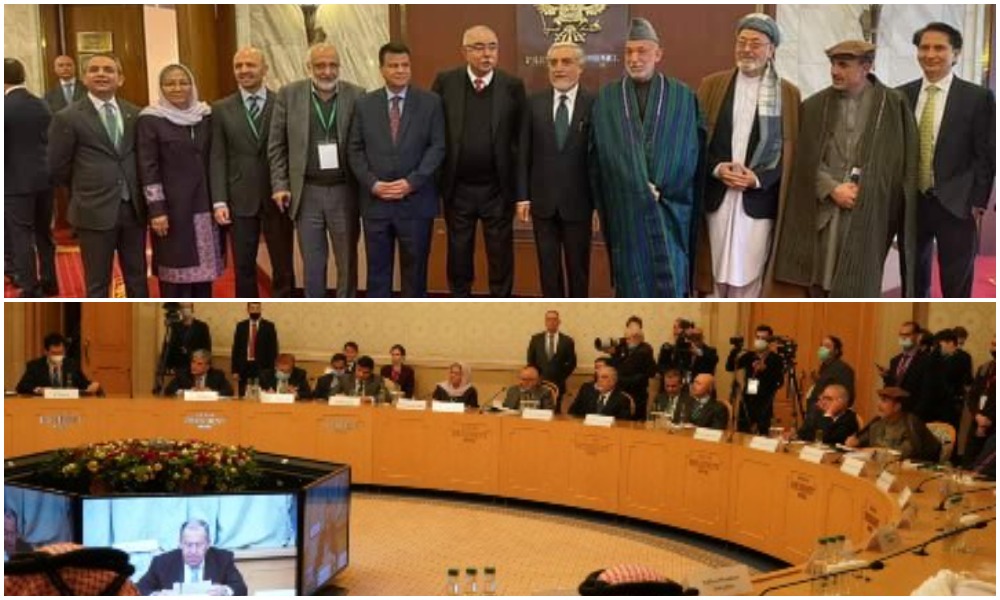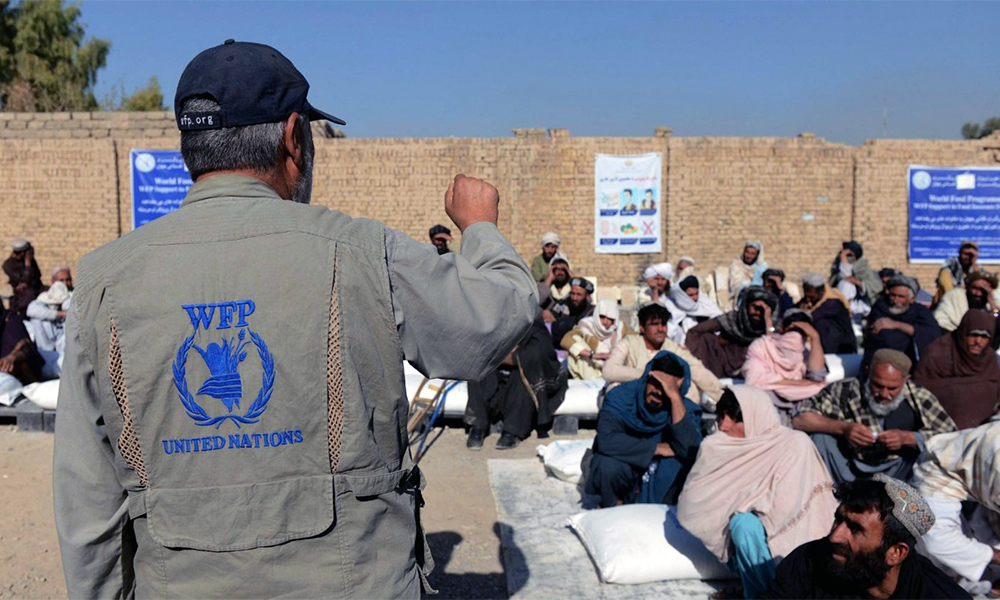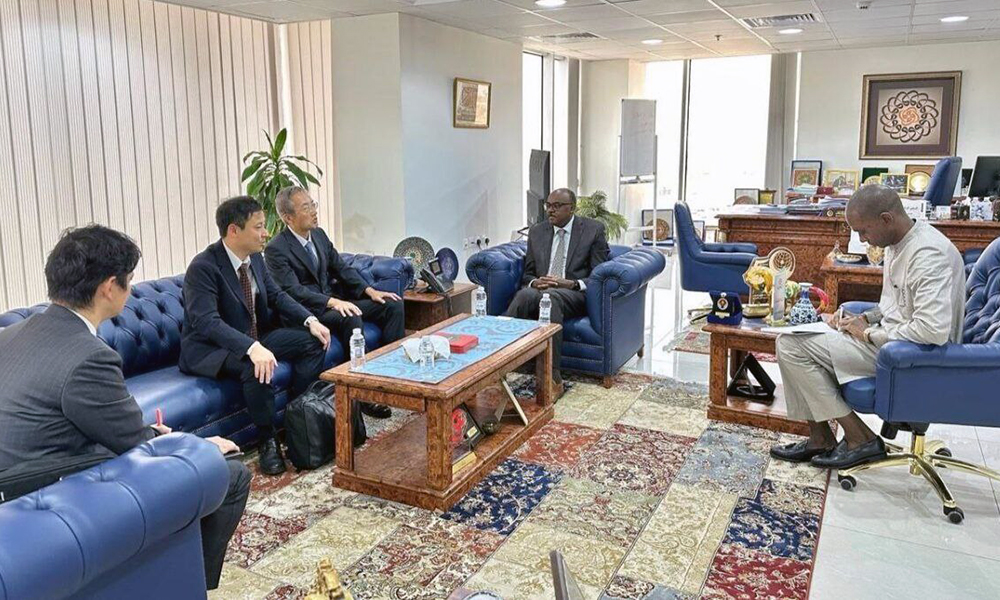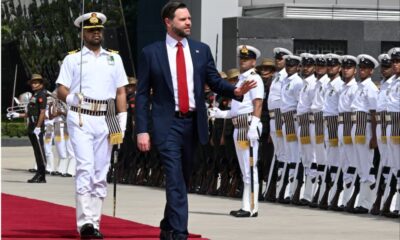Latest News
Habiba Sarabi the lone woman in a room full of men at Moscow meeting

Despite repeated pledges by the Afghan government and the country’s politicians to include women in decision making processes, Thursday’s grand meeting in Moscow on the peace process indicated otherwise.
As delegates filed into the meeting room – it quickly became clear that among the dozens present, all were men – except for one.
Habiba Sarabi was the only female among the Afghan delegates – which included the Afghan government, the Taliban and individuals from Afghanistan who were sent invitations by Moscow.
Sarabi was the lone female voice in a room full of men.
In a tweet after the meeting, Sarabi made her feelings on the matter clear and said in reference to the Turkey meeting in April: “I hope I will not be the only woman at the next summit.”
Coming out in support of Sarabi was Nader Nadery, a fellow Afghan Republic peace talks team member, who said after the meeting that Sarabi “said in her remarks to the room full of men: why I should be the only woman in the room? We have not been part of the war, we can certainly contribute to peace. 51% of people should not be ignored. Hope hosts take note of it for the future.”
Nadery also stated that he hopes an “equal number of women on tables should become the norm. Proud of Sarabi Habiba.”
Shaharzad Akbar, chairperson of the Afghanistan Independent Human Rights Commission (AIHRC) also questioned this imbalance.
She said in a tweet: “Based on media reports, some of the invitations for Moscow event were delivered to specific individuals. Why didn’t Russia include a single Afghan woman on that list? There was also an invitation to Afghan government presumably, why wasn’t that invitation utilized to send four women negotiators?”
Even Ashraf Haidari, Afghanistan’s Ambassador to Sri Lanka, weighed in. He said in a tweet: “The presence of articulate women slowly diminished in peace meetings. Their substantive input and leadership in any peace engagement is naturally needed, as they speak for two thirds of any population, including children they nurture. Moscow wouldn’t care. Every Afghan must!”
This sentiment was shared by many including Human Rights Watch interim co-director, women’s rights division Heather Barr who quite bluntly said: “So easy for all the men – of varying, but not too varying, levels of misogyny – to snuggle up and make friends when they only let one woman in the room.”
Even Lyse Doucet, the BBC’s Chief International Correspondent commented. She said: “Strong voices of Afghan women. Is that why they don’t want more at the table?”
Soon after the start of the intra-Afghan talks in Doha, in September last year, Oxfam, Cordaid and InclusivePeace released a report stating that nearly 80 percent of Afghanistan’s peace tables, since 2005, have excluded women.
At the time, the report stated that without the meaningful participation of women, any sustainable peace efforts are at risk of failure.
The joint report Because She Matters, highlighted tangible ways to ensure women’s propositions and concerns are reflected in the negotiation process. It also showed that peace is more attainable when women have a place at the table, as peace agreements are 35 percent more likely to last beyond fifteen years when women effectively engage in them.
“Continued exclusion of women from Afghanistan peace efforts and decision-making will not only jeopordise the realisation of a true and sustainable peace, but blatantly disregard women’s rights to define their own future. We fear hard-won gains in women’s rights could be reversed”, said Ashish Damle, Oxfam’s Country Director in Afghanistan.
“Continued exclusion of women from Afghanistan peace efforts and decision-making will not only jeopordise the realisation of a true and sustainable peace, but blatantly disregard women’s rights to define their own future.”
During the meetings between the US government and the Taliban in Doha in February last year that set the stage for the start of the intra-Afghan peace process in September, not one woman was included in the conversation; and consequently women’s rights were not mentioned in the resulting deal struck a year ago.
“Despite seeing a small number of Afghan women represented in peace processes, Afghan women’s voices are largely marginilized. The intra-Afghan peace process, at all stages and levels, needs to do much better,” added Damle in September last year.
Latest News
14 kms of TAPI pipeline laid inside Afghanistan, says project manager

Baganch Abdullayev, the General Director of the TAPI project in Afghanistan, on Thursday met with Noor Ahmad Islamjar, the governor of Herat, for a report back on progress made in accelerating the pipeline-laying process of the Turkmenistan-Afghanistan-Pakistan-India project in the province.
The Herat governor’s press office said in a statement that Abdullayev shared a brief report on the progress of the TAPI project with Islamjar.
According to the statement, Abdullayev said so far 14 kms of pipeline has been laid while an additional 24 kms of ground has been levelled for the pipeline.
During the meeting, the governor of Herat also welcomed the efforts of TAPI project officials in advancing the work and assured the project head of the local administration’s full support in facilitating the swift progress of the project.
Once completed, TAPI pipeline will transport natural gas from the Galkynysh Gas Field in Turkmenistan through Afghanistan into Pakistan and then to India.
The pipeline was completed on the Turkmenistan side in 2024, and the project is currently expanding southbound in Herat Province of Afghanistan.
Latest News
WFP appeals for $25 million to help support Afghan returnees amid humanitarian crisis

The World Food Programme (WFP) this week issued an urgent appeal for $25 million to address the escalating needs of Afghan refugees being expelled from Pakistan.
According to the WFP, thousands of Afghan families are crossing into Afghanistan from Pakistan every day and face serious food insecurity.
The organization also stated that millions in Afghanistan are grappling with severe hunger, and immediate aid of $25 million is needed to assist returnees.
On Wednesday, April 23, in a video shared on X, WFP’s head in Afghanistan, Mutinta Chimuka, visited the Torkham border crossing with Pakistan. During her visit, she highlighted the challenges faced by returnees, many of whom have spent their entire lives in Pakistan and are unfamiliar with Afghanistan.
Chimuka pointed out that many returnees have no income, employment, food, or shelter.
The WFP stressed that thousands of families are being forced to leave Pakistan, while 15 million people in Afghanistan are uncertain where their next meal will come from. The situation has become dire, with basic needs going unmet for a large portion of the population, the WFP said.
Chimuka warned that current aid efforts are insufficient to support the returnees, and new financial resources are urgently needed to address their needs by the end of the year.
Meanwhile, the pace of deportations and expulsions of Afghan migrants from neighboring countries, particularly Pakistan, continues to increase. The Pakistani Ministry of Interior reported that over 100,000 Afghan migrants have been returned since April 1.
The International Committee of the Red Cross (ICRC) has also raised alarm, noting that while thousands of refugees return every week, there are millions of Afghans who are currently facing poverty, homelessness, and difficult living conditions.
Latest News
Tarig Ali Bakheet and Japan’s Deputy Foreign Minister discuss Afghanistan’s situation
Both sides emphasized the importance of continued collaboration to address the urgent needs of the Afghan people.

Tarig Ali Bakheet, the Special Representative of the Organization of Islamic Cooperation (OIC) for Afghanistan, met and held discussions with a Japanese delegation led by Masayuki Kamada, Deputy Minister for Foreign Affairs of Japan, regarding the situation in Afghanistan.
According to a statement by the OIC, the meeting mainly focused on the current situation in Afghanistan and explored ways to enhance humanitarian cooperation between the organization and Japan.
Based on the statement, both sides emphasized the importance of continued collaboration to address the urgent needs of the Afghan people.
The meeting took place at the office of the OIC Special Representative for Afghanistan in Jeddah, Saudi Arabia.
The statement also noted that the Consul General and Deputy Consul General of Japan in Jeddah were part of the Japanese delegation.
-

 World4 days ago
World4 days agoThousands of protesters rally against Trump across US
-

 Latest News4 days ago
Latest News4 days agoPolio vaccination campaign launched in Afghanistan
-

 International Sports2 days ago
International Sports2 days agoIPL 2025: Robo-Dog ‘Champak’ explained
-

 International Sports4 days ago
International Sports4 days agoIPL 2025: 14-year-old Vaibhav Suryavanshi becomes youngest IPL player
-

 Latest News3 days ago
Latest News3 days agoChina invites various Afghan delegations to attend Shanghai forums
-

 Latest News3 days ago
Latest News3 days agoAriana Afghan Airlines increases flights to China
-

 World3 days ago
World3 days agoPentagon chief Hegseth shared sensitive Yemen war plans in second Signal chat, source says
-

 Regional3 days ago
Regional3 days agoJD Vance arrives in India, to hold talks with Modi under US tariffs shadow
























